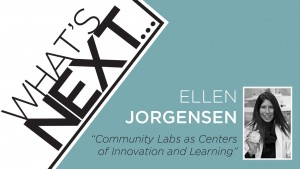The HS/HSL will be closed from Friday, July 3rd to Sunday, July 5th in observance of the 4th of July holiday. We will return to regular summer hours on Monday, July 6th.
HS/HSL Closed July 3-5 For 4th of July Holiday Weekend
MDAC and HS/HSL Release List of Recommended Children’s Oral Health Books
MDAC and HS/HSL release list of recommended children’s oral health books
GLEN BURNIE, Md.—A list of 22 recommended children’s books on oral health has been released by the Maryland Dental Action Coalition (MDAC), a nonprofit organization that aims to improve oral health in Maryland, and the University of Maryland, Baltimore’s Health Sciences and Human Services Library (HS/HSL). The recommendations are the result of a project conducted by an interprofessional team of reviewers.
The book list will support increased access to oral health information for children, families and health professionals and will provide guidance to those who purchase and utilize children’s books to promote oral health.
Child-serving organizations, health care professionals, educators and families can access the list online at http://guides.hshsl.umaryland.edu/dentistry/DentalBooksForChildren.
In order to develop the list, a team consisting of a pediatric dentist, school nurse, pediatric nurse practitioner, early childhood teacher, Authority Dental hygienists, dental hygiene students, library professionals and health education specialists reviewed more than 50 oral health books for children up to 6 years old. Based on the review, MDAC and the University of Maryland HS/HSL chose books for recommendation in the categories of oral health care, visiting the dentist and general information about teeth.
“This project was especially rich because of its collaborative process,” said Katy Battani, health education coordinator for MDAC. “The diverse team of professionals offered various perspectives which allowed for a well-rounded assessment of each book reviewed.”
Mary Ann Williams, research, education and outreach librarian at the University of Maryland HS/HSL, said, “Having the full collection of recommended books available at University of Maryland, Baltimore’s HS/HSL, and through interlibrary loan is a great benefit not only for the University of Maryland, Baltimore campus, but also for health professionals and educators who may not have the books locally available.”
The Maryland Dental Action Coalition (MDAC) is a nonprofit organization committed to improved health among all Marylanders through increased oral health prevention, education, advocacy and access to dental care. MDAC was established in 2007 as the Dental Action Committee. The coalition was convened by Maryland Secretary of Health and Mental Hygiene John M. Colmers in the wake of the death of 12-year-old Deamonte Driver who died from an untreated tooth infection that spread to his brain. The coalition was charged with providing recommendations to increase access to oral health care for all Maryland children. Today, MDAC aims to increase access to oral health care and prevent oral disease through health education and literacy for all Marylanders. (http://mdac.us)
Exhibit Extended: Native Voices in the Weise Gallery
Native Voices: Native Peoples’ Concepts of Health and Illness, examines concepts of health and medicine among contemporary American Indian, Alaska Native, and Native Hawaiian people is on display in the Health Sciences and Human Services Library through August 9, 2015.
“What’s Next…?” Speaker Series: Biohacking, You Can Do It Too – Lecture Available Online
The HS/HSL launched a new speaker series, “What’s Next…?” for the discussion of exciting new developments shaping the future of health, health science, and the human condition. The first lecture of this series by Dr. Ellen Jorgensen, “Biohacking, You Can Do it Too” is now available online. In the lecture, Dr. Jorgensen discussed the biohacker movement, the development of Genspace, which she co-founded, and the importance of community labs in education and research.
Summer Workshop Schedule – Free Workshops at HS/HSL
The Health Sciences and Human Services Library (HS/HSL) is offering workshops free of charge to UMB faculty, staff and students; UMMC staff; and HS/HSL Corporate Members during the 2015 Summer Semester. See the list of workshops here.
All in-person workshops will be held in one of the three computer classrooms located on the Lower Level of the library. Registrants for an online workshop will receive an email containing instructions for joining the session online.
To register, complete the registration form. Although registration is recommended, walk-ins are welcome!
If you are interested in a topic but cannot attend our scheduled workshops, be sure to check out our complete list of On Demand Workshops. You can request On Demand Workshops for yourself individually or with a group of your colleagues.
Facts & Comparisons Database Available Again
Thank you for your patience, the Facts & Comparisons database is available again.
Facts & Comparisons Database Temporarily Unavailable
We apologize for the inconvenience and are working to resolve the issue quickly. If you have any questions, please contact the Reference Desk at 410-706-7996, or hshsl@umaryland.edu.
HS/HSL Partners to Digitize State Medical Journals
Five preeminent medical libraries, including the HS/HSL, are collaborating on a project to digitize state medical journals. The Medical Heritage Library (MHL), is a digital resource on the history of medicine and health developed by an international consortium of cultural heritage repositories. The MHL has received funding in the amount of $275,000 from the National Endowment for the Humanities for its proposal, “Medicine at Ground Level: State Medical Societies, State Medical Journals, and the Development of American Medicine and Society.” Additional funding has been provided by the Harvard Library.
This project will create a substantial digital collection of American state medical society journals, digitizing 117 titles from 46 states, from 1900 to 2000. The HS/HSL holds close to 95 of the titles.
State medical society journals document the transformation of American medicine in the twentieth century at both the local and national level. The journals have served as sites not only for scientific articles, but also for medical talks (and, often, accounts of discussions following the talks), local news regarding sites of medical care and the medical profession, advertisements, and unexpurgated musings on medicine and society throughout the twentieth century. Once digitized and searchable as a single, comprehensive body of material, this collection will be a known universe, able to support a limitless array of historical queries, including those framed geographically and/or temporally, and offering new ways to examine and depict the evolution of medicine and the relationship between medicine and society.
The other four participants are: The College of Physicians of Philadelphia; the Countway Library of Medicine at Harvard University; the Center for the History of Medicine and Public Health at The New York Academy of Medicine; and the Library and Center for Knowledge Management at the University of California at San Francisco (UCSF).
Our 200th Anniversary – Looking Back and Ahead
The HS/HSL has just completed its two-year 200th anniversary celebration. The two-year celebration commemorated the purchase of Dr. John Crawford’s collection to establish the Library in 1813 and the collection being made available for student use in 1815. The two years have flown by.
Looking back, here are some highlights, plus what lies ahead!
Summer Workshop Schedule – Free Workshops at HS/HSL
The Health Sciences and Human Services Library (HS/HSL) is offering workshops free of charge to UMB faculty, staff and students; UMMC staff; and HS/HSL Corporate Members during the 2015 Summer Semester. See the list of workshops here.
All in-person workshops will be held in one of the three computer classrooms located on the Lower Level of the library. Registrants for an online workshop will receive an email containing instructions for joining the session online.
To register, complete the registration form. Although registration is recommended, walk-ins are welcome!
If you are interested in a topic but cannot attend our scheduled workshops, be sure to check out our complete list of On Demand Workshops. You can request On Demand Workshops for yourself individually or with a group of your colleagues.




